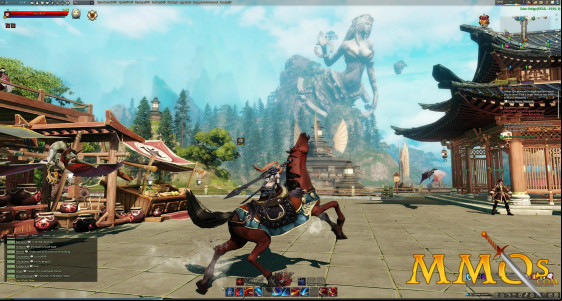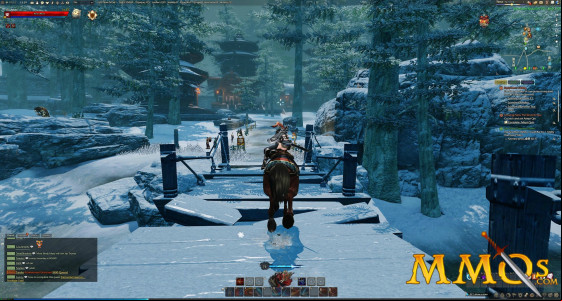Revelation Online Points To China For MMORPGs

In the months leading up to MMORPGs matter in 2017.
Before Revelation Online there was a gap in the MMORPG market, no big-deal-blockbusters were slated to release. Cynics loved to embody Paul Revere: “The genre is dying. The genre is dying! Told ya so, told ya so!” Plenty of indie titles were continuing to turn to Kickstarter to fund their dreams (and their ers’), but bigger studios—Blizzard included—shied away from MMORPGs in favor of new concepts or sure-fire regurgitations.
The West seemed fed up. It’s easier, and cheaper, to make a Clash Royale spin-off than a fully fleshed out MMORPG universe. Players were hungry, and didn’t know where to look. Prior to 2016 the thought that a game imported from China could become home for Western MMORPG players wasn’t even a thought.
One of the last major Chinese MMORPGs to release was Swordsman under World of Warcraft. It’s the same story for many Chinese MMORPGs from the past: stuck in the shadow of Western rivals.
Shadows weren’t the only impediment to a Chinese MMORPG’s success.
There was also a stereotype of Chinese games (and it continues to pervade), as copy and paste products. Loosely clothed IP protection laws let studios take popular IPs and reskin them for sale. That’s how we got anime ripoffs like Tiny Mighty Heroes Unite. Even today we find browser games borrowing from one another—a sphere where one game can be mistaken for any other. That stereotype blanketed every game from the Four Seas with a shrug.
When Western players looked East, their eyes focused on Seoul. “Looked” is the key term. Korean games eventually lost their appeal. They came under fire for failing to innovate: the same themepark grinder experience again and again, without any of the charm of the early 2000’s games such as Blade and Soul—a game released years after it should have been. Most fell to the wayside, one game after another making incremental progress on what players had already played, with too many choices all looking the same.
A lackluster Korean production cycle and Western skittishness regarding MMORPGs left players lost. Then something different showed up. Something that looked similar to other games but new enough to be attractive. A novelty that MMORPG players began to whisper about and then talk openly about: Revelation Online.
While Revelation Online is close to “revolutionary” in the dictionary, it doesn’t overlap with the concept on a Venn-diagram. But it is novel, a mashing of multiple tropes and elements from seemingly disparate MMORPGs in one package. And novelty different is enough to hold someone’s attention; novelty can be as alluring as a familiar love. Eastern and Western elements combine in Revelation Online’s world, and while not a designed for everyone. It’s mashing is a notable analogy for what’s currently happening in the MMORPG industry.
Revelation Online released as a significant shift in the power players of the MMORPG market is taking place. More Western studios are bought by Chinese companies every day: Riot Games are under the firms and Shandong Honda and Tencent respectively. Analytics firm Superdata Research predicts that “Chinese companies will scoop up 1-2 western publishers a month from here on.”
Revelation hasn’t reversed the course of Western apprehension about Chinese MMORPGs, but it has become the stepping stone that normalizes a Chinese MMORPG’s release, that shows it’s acceptable to throw your basket of hope behind a Chinese developed MMORPG. It was the first to do so. The first to have a hype train whose whistle everyone could hear. Revelation Online has re-paved the road from China to Western markets, opening a door in the wall that will let future projects like Twilight Spirits through with hopeful—and as always cautious—anticipation. Revelation Online marks a time when players cast their gaze East beginning with China.





